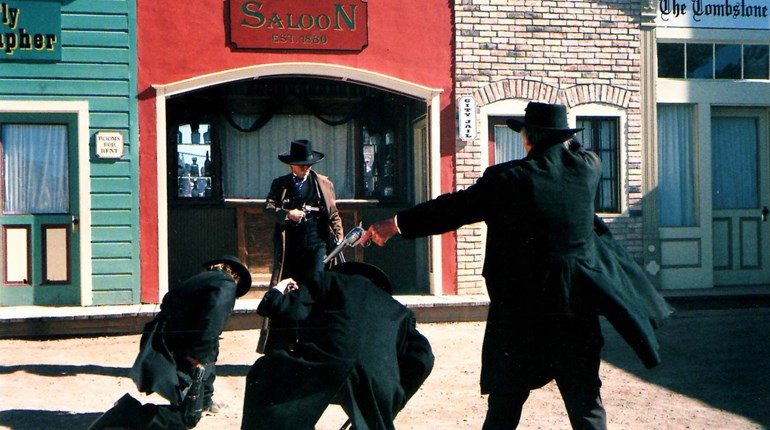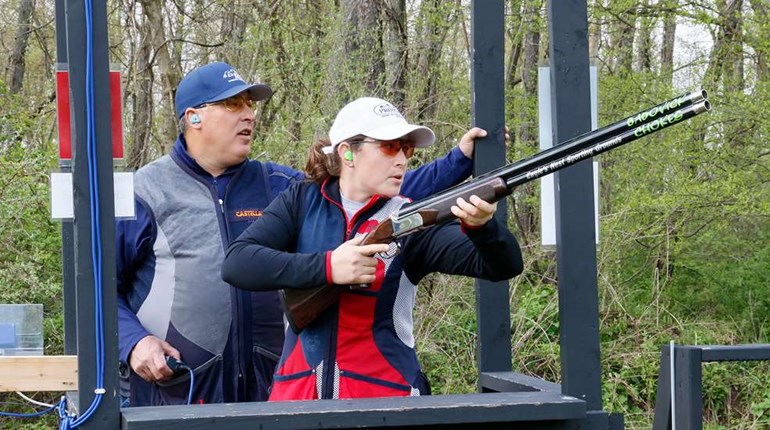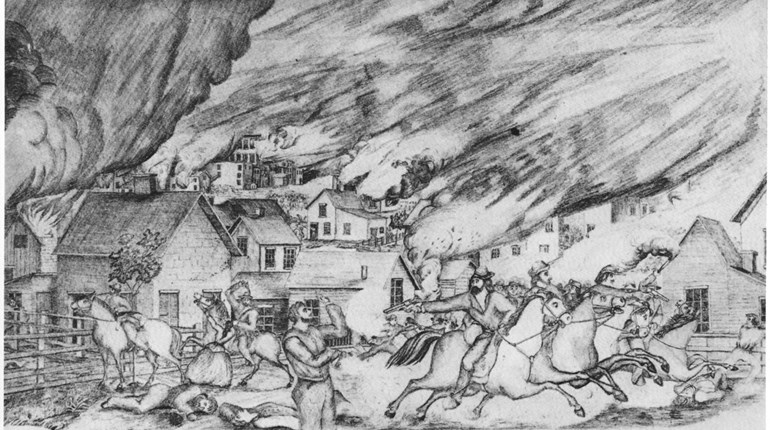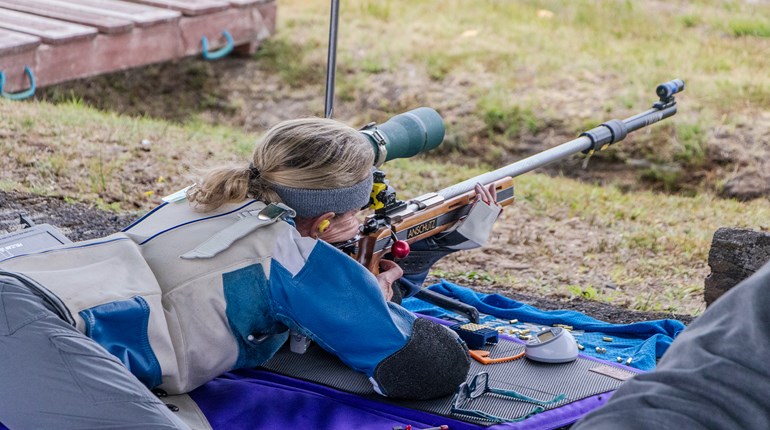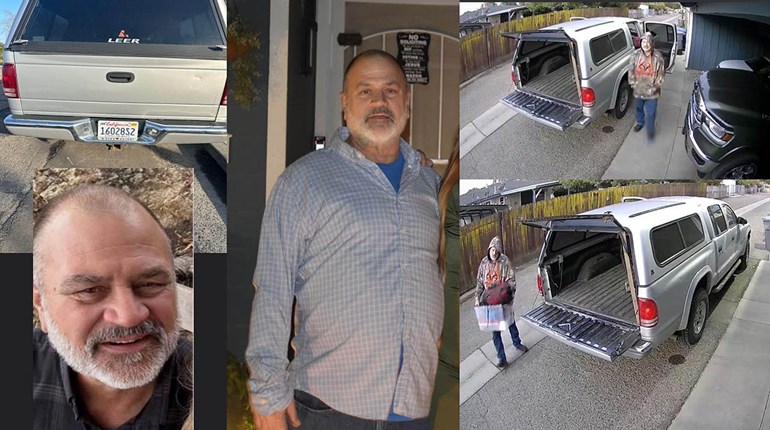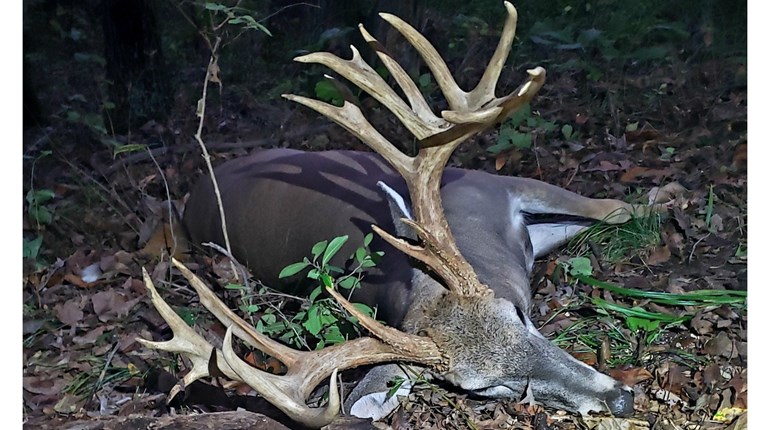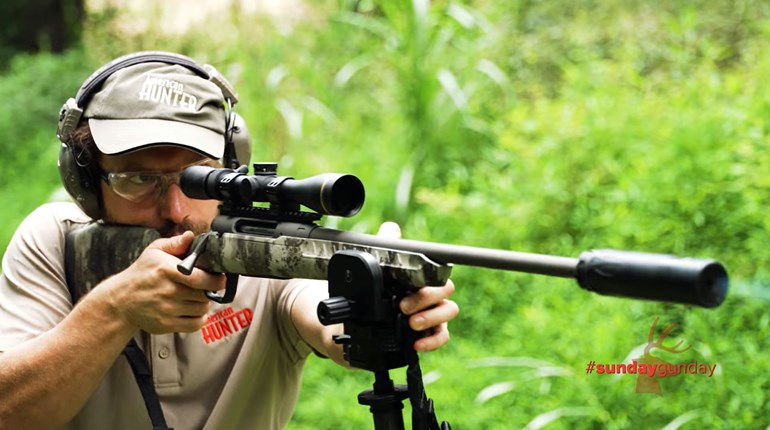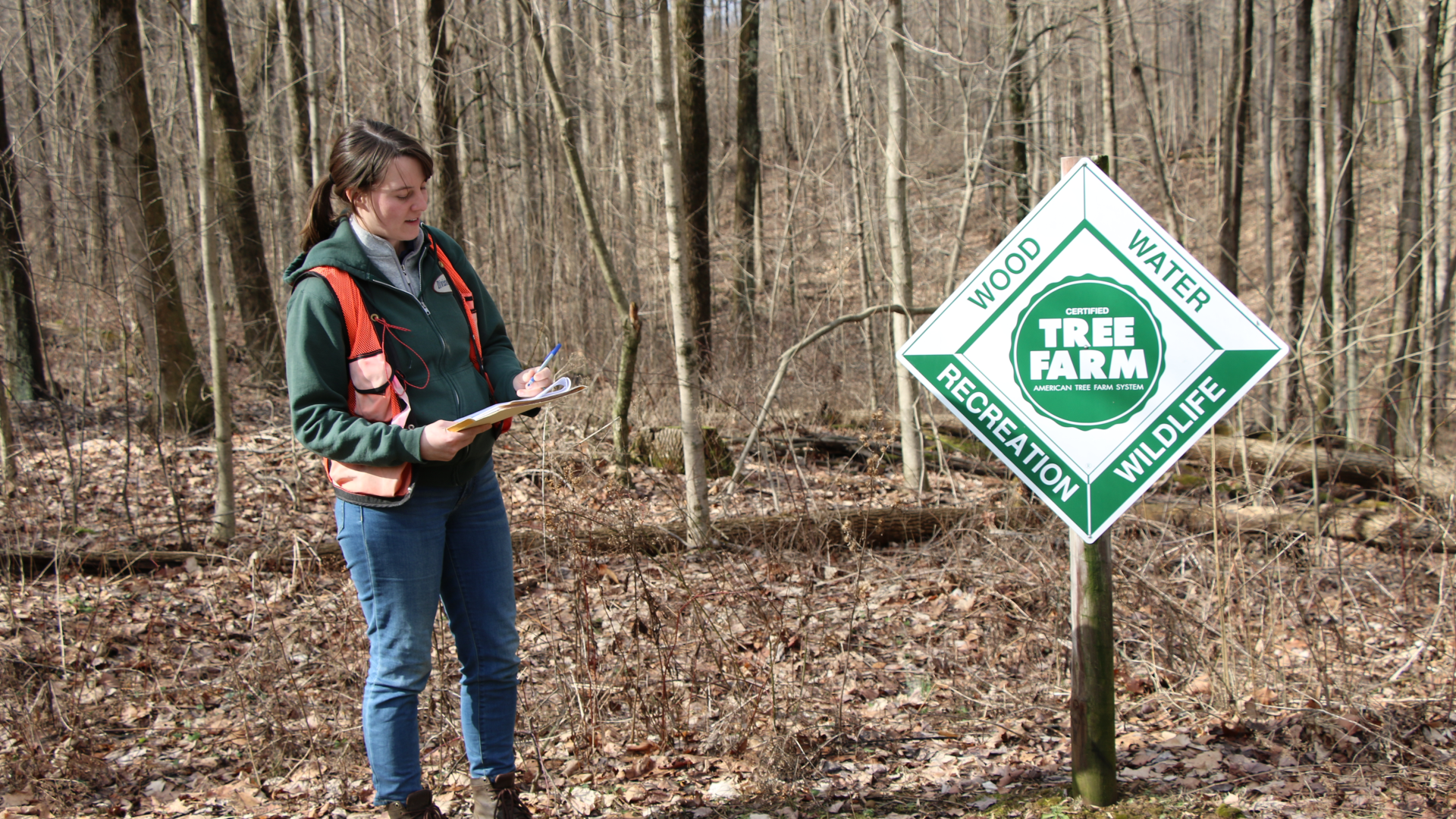
Women, particularly younger women, are today entering career fields in natural resources conservation that only a generation ago were essentially closed to them. One of those young women is Katie Gerber, a service forester with the Ohio Department of Natural Resources, Division of Forestry—and she has a really cool outdoor job!
Where did you grow up, and did you have any outdoor interests as a kid?
“I grew up in the country near the small town of Willard in northcentral Ohio, and spent a lot of time exploring my grandparents’ small woodlot. It always invoked a sense of curiosity and wonder in me, but I really didn’t know that anyone could actually have a career in the outdoors until I was a teenager.”
How did you become interested in forestry as a profession?
“It wasn’t until my older sister began attending Hocking College in Ohio, studying natural resources management, that I realized those types of outdoor jobs existed. So, after graduating from high school, I too attended Hocking, enrolling in natural resources classes. I became interested in studying forestry through an inspiring professor I had who worked for the U.S. Forest Service at Wayne National Forest.”
What education is needed to become a professional forester?
“At Hocking College, I earned a two-year associate’s degree in forestry. It is possible to land a forestry technician’s job with an associate degree, but I also wanted a bachelor’s degree—which I knew would give me more job opportunities—so continued my education at Ohio State University. I graduated from OSU in 2019 with a four-year degree in Forest Ecosystem Science and Management.”
What exactly does a Service Forester do?
“A service forester works as an advisor to private landowners who own woodlots. As a state employee, a service forester does not have a vested financial interest in a landowner’s property, so we can provide landowners an honest, unbiased opinion of their woods. And best of all, our services are free of charge. We also help landowners apply for state tax-reduction programs and federal money that’s available for accomplishing best-management forestry practices on their property.”
Please describe a typical workday.
“If I’ve not met with a particular landowner before, I first walk over their woodlot with them to get a sense of what condition their trees are in and the management goals they have in mind. For instance, do they want to manage for timber production, wildlife, a combination of both, or do they have other specific goals? That initial visit usually takes a couple of hours, and I try to do at least two of those landowner visits per day. Office work takes up one day per week, if not more, depending upon the time of year. But, usually, I’m in the woods more than I’m in the office.”
What do you like most about your job?
“One of the main things I enjoy is getting to meet new people and learning from them—I certainly don’t know it all. Being a service forester is really the best of both worlds, at least for me, because I get to be outdoors much of the time, but I also get to work with people, which I also enjoy. And I experience a certain sense of satisfaction from my job when I see a landowner’s woods improve over time in response to the management practices I’ve recommended. What I don’t necessarily like about my job is all the paperwork, but there’s no getting around that.”
How would you suggest a young person begin investigating a possible forestry career?
“I believe that one of the best ways for a young person to learn about professional forestry is to job-shadow a forester for a day. Attending a weeklong summer forestry camp for high-schoolers is also very beneficial, because it’s not only fun, but you get to hear various professionals speak during the week explaining what they do. Ohio has a very successful annual summer program called Camp Canopy. I’m sure there are other, similar summer programs throughout the U.S. An internship position with a forest-management organization—private, state or federal—can also help a young person decide if a forestry career is right for them.”
Has being a young woman helped or hindered your forestry career?
“I’ll be honest, there aren’t a lot of women in forestry jobs, and there also isn’t much racial diversity in our career field. But everyone I’ve worked with, both state government employees and private landowners, has been very supportive and encouraging. However, I know this has not been the case for all women.
“In the future, I believe women foresters will no longer be considered a rarity; I can see that day coming. In fact, state and federal natural resource agencies are actively looking to recruit not only women, but guys, too. In general, there just aren’t enough professional foresters these days to fill all the open positions, so forestry is actually a growth career field. A young person who is serious about working in the outdoors should check it out.”
Lastly, Katie Gerber mentioned that it’s important for a potential forester to work hard, yet not take things too seriously. In other words, having a sense of humor and being able to occasionally laugh at yourself is an asset. For example, she shared the following humorous anecdote in closing.
“As a forestry intern, I was working at Tar Hollow State Forest in southeast Ohio, an area known for its steep, rugged terrain. One hot summer day, we were marking the boundaries of the forest by brushing the trunks of the boundary trees with a splash of yellow paint. I don’t quite know how it happened, but I stumbled and somehow managed to dump the entire can of yellow paint I was carrying over my head. And to make matters even worse, when I got back to the road to meet my other team members, many of the “higher-ups” from the Division of Forestry were there that particular day for some reason, and they saw me walk out of the woods covered in yellow paint, head to toe. In retrospect, it’s amazing they ever hired me fulltime,” she grinned.













